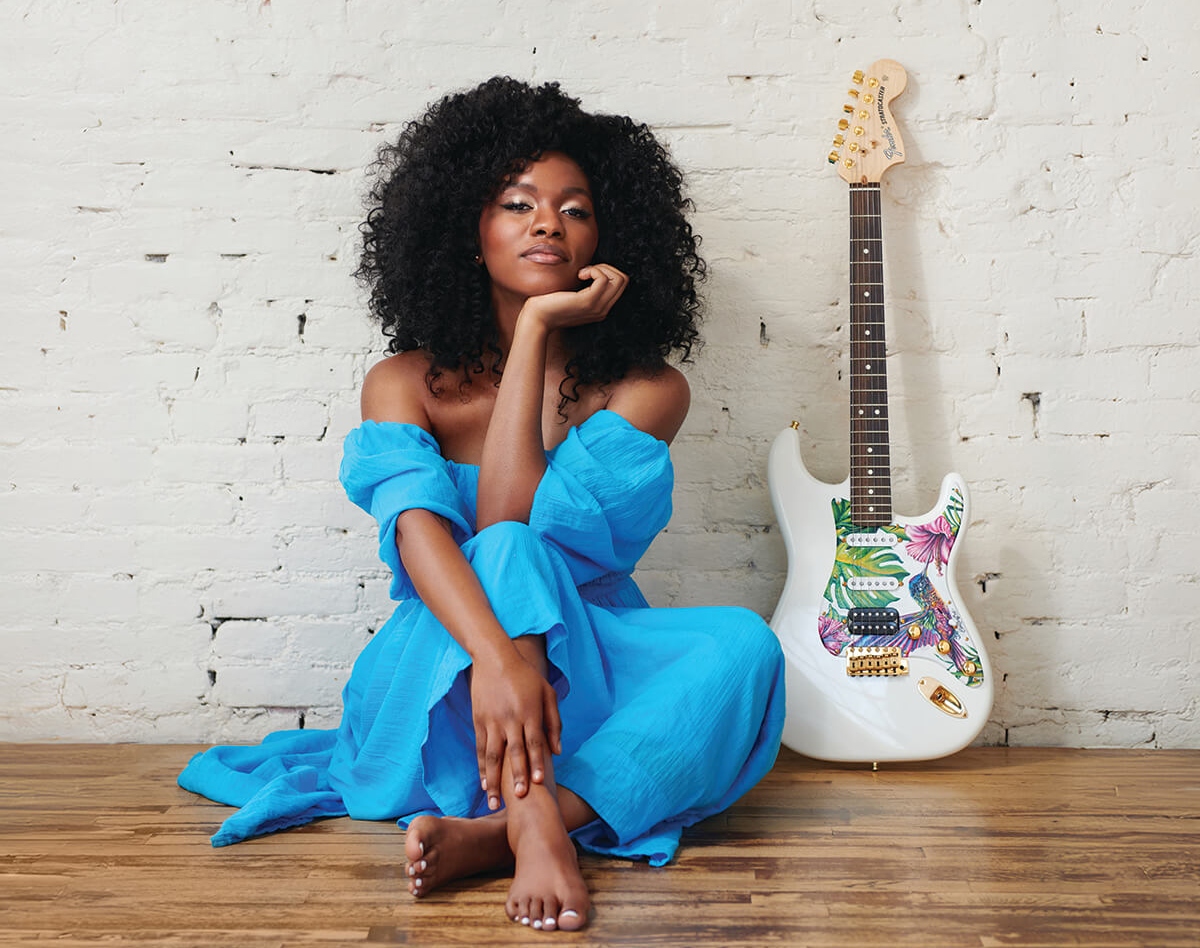Arts & Culture
Blues Musician Evan Nicole Bell Isn’t Your Typical Rough-and-Tumble Guitar Slinger
The Columbia-raised social media star played every instrument (except for drums) on her first full-length album, 'Shades of Blue,' while also filling the roles of producer and recording engineer.

It’s probably safe to say that most blues musicians didn’t earn a bachelor’s degree from Duke University or attend grad school at the University of California, Berkeley. But Evan Nicole Bell is not your typical rough-and-tumble guitar slinger. The 28-year-old, who was born in Texas but grew up in and now lives in Columbia, boasts a legitimate blues pedigree—according to family lore, an uncle played guitar with blues legend Lightnin’ Hopkins.
Her covers of soul, R&B, and blues songs have been watched online more than 13 million times. In January, Bell released her first full-length album, Shades of Blue. A mix of original compositions and covers, it hit number one on the Roots Music Report’s singer-songwriter chart. Bell played every instrument on the LP—except for drums—while also filling the roles of producer and recording engineer.
When we spoke with Bell this winter, she was already penning songs for her next album
What music did you listen to growing up?
I grew up in a household around funk, soul, gospel. A lot of Motown, Michael Jackson, Stevie Wonder, Isaac Hayes, The Isley Brothers, The Bar Kays, Teena Marie—those were the artists my mother listened to. And when I was developing my own musical tastes, it expanded from there.
How did you get into the blues?
I didn’t really know about the blues until I started playing electric guitar, and then I started hearing music differently. I started hearing the blues influence in all modern music—in rock, in R&B—and I started hearing how pervasive it was and how important it was. People hear blues and they think, “Oh, sad.” But that’s not just what it is. It’s stories about human existence. It’s the full gamut of emotions and experiences. Sometimes you’re down and sometimes you’re up. And I think my music reflects that.
How long have you been playing guitar?
I’ve been playing classical guitar since the eighth grade. When I was 21, my mom bought me an electric guitar. That changed my world. That’s when I really fell in love with songwriting. I found that the electric guitar most closely mimicked the human voice. All the micro-bends and vibrato, it was almost like a duet partner. That was new for me. Not just having an instrument to play the underlying melody over but having an instrument that could mirror that vocal melody back to me. I thought that was so cool.
How did you develop such a huge social media following?
[In 2021,] for something called Play Music on The Porch Day, I played Albert King’s “Crosscut Saw” and posted it on my YouTube channel, which had, like, one subscriber. it was there for a year, and then someone in Sweden took the video from YouTube and posted it on Twitter. And things just went viral from there.
That same year you performed live at WTMD as part of Public Radio Music Day, which landed you on the homepage of NPR Music. What was that experience like?
It was exciting. And it was funny to me, too, because it took a video going viral [internationally] to be invited to perform 20 minutes from my house. With NPR Music, I was able to reach an even bigger audience. It was one of those moments that started my career and got me excited about really making this into a vocation for life.
How has the response been to the new album?
We’ve shipped records all across the world—to Japan and Australia and UAE. That’s crazy to me! That’s a metric of how I know I’m reaching people, and it’s beautiful. It speaks to the testament of music as a universal language—that one person who is making music in Maryland is touching someone in Kyoto. Stuff like that really encourages me and keeps me going.
There’s an interlude on Shades of Blue when you interview your grandmother about your family’s potential connection to Lightnin’ Hopkins. Did she know it would be on the record?
She was so excited and so shocked. I used it as an introduction to “Catfish Blues.” I care a lot about legacy, and I think her interlude shows my place in the legacy of my family but also the greater legacy of Black history, blues history. That was really powerful for me to have her on there, and it will exist forever.
You also give a shout out to the Baltimore Blues Society. What was that organization’s role in producing the album?
Oh, they were very helpful to me. Part of my record was funded from a grant from Mid-Atlantic Arts, and the Baltimore Blues Alliance partnered with me in order to allow me to apply for that grant. And that made all the difference. I really appreciate their help and support; otherwise, the record may not have even existed.